Hayling RNLI crew reveal what it takes to save lives at sea
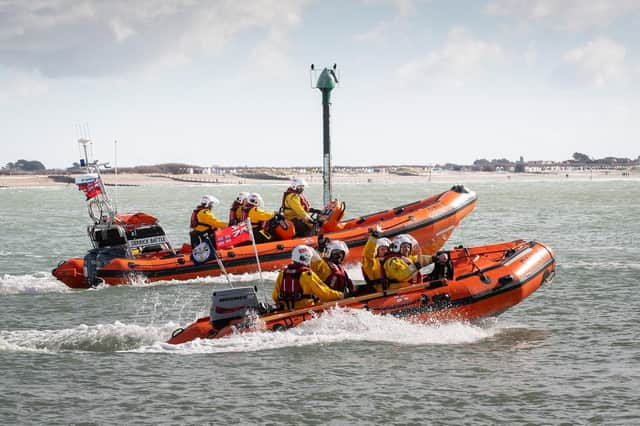

Within literally minutes, you are heading out to sea in total darkness, in the freezing cold, on a small boat with 10m waves smashing into you and gale force winds throwing you around like a child’s toy.
You are at the mercy of Mother Nature and you need to locate people who may die if you do not find them. And find them quickly.
Advertisement
Hide AdAdvertisement
Hide AdThat sort of life and death situation, that incredible adrenaline rush, that community-spirited behaviour, might not appeal to you. And especially when you’re not getting paid either, you’re actually volunteering to take part in scenarios like the one mentioned. But if it DOES appeal, then the Hayling Island RNLI are eager to hear from you.
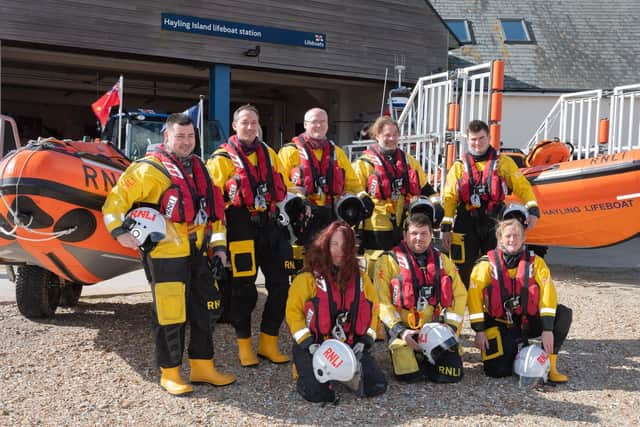

Yes, it can be very hard work. And yes, it can be life-threatening. But the benefits of being part of the RNLI are wide-ranging.
‘It can change your life,’ said Hayling helm Graham Chapman. ‘It’ll stretch you, you’ll learn new skills, you’ll make some fantastic friends – some lifelong friends.
‘There’s a mighty adrenaline rush, but you need a good degree of self-control. The key is controlling your enthusiasm.
Advertisement
Hide AdAdvertisement
Hide Ad‘The RNLI can never teach you enough. You can’t train for every eventuality – you’re going to be thrown a curveball every now and again.’
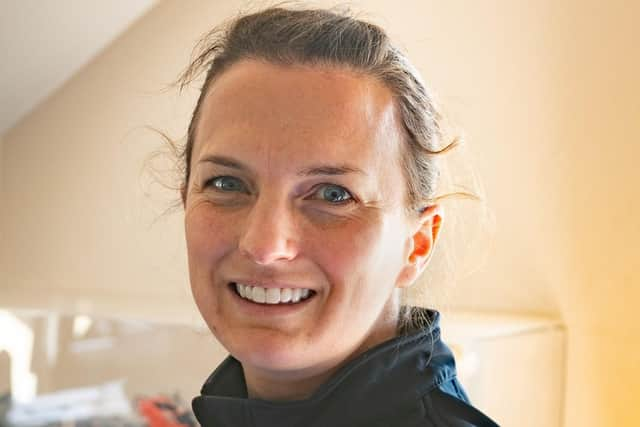

There is far more to the RNLI than just saving sailors and swimmers in distress – ‘curveballs’ include looking for animals searching for missing people and suicide attempts.
Tony Green, a member of the Hayling team for 18 years, is fully aware of the emotional rollercoaster ride which is being an RNLI crew member.
‘You get self-satisfaction from being part of the team, and when you rescue people and see their smiling faces it’s a really good feeling,’ he said.
Advertisement
Hide AdAdvertisement
Hide Ad‘But you never know what you’re going to get on a call, it could be anything. It could be something nice, it could be horrible. You have to remember some times people don’t want rescuing.
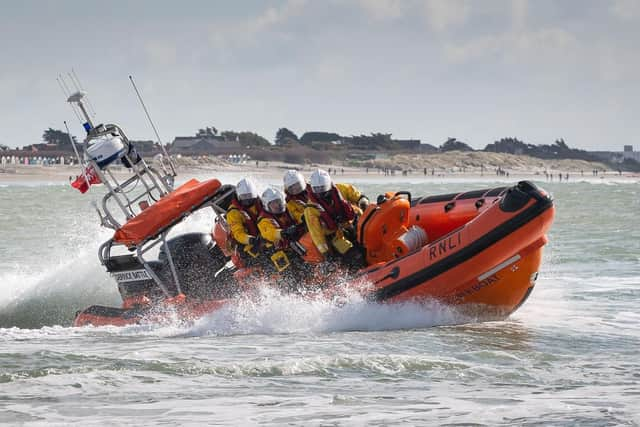

‘That’s a very difficult situation to be in, when people push away from you saying ‘I want to die, leave me alone. I remember grabbing one guy around the waist – he didn’t have a top on – and dragging him onto the boat.
‘At times you end up rescuing the same people two or three times that way.’
Tony - 55, the age RNLI boat crew have to retire - added: ‘It is hard going, it’s not for the faint-hearted. You have to be physically fit.
Advertisement
Hide AdAdvertisement
Hide Ad‘It can be rough out there, the sea can be very deceiving, very unpredictable.
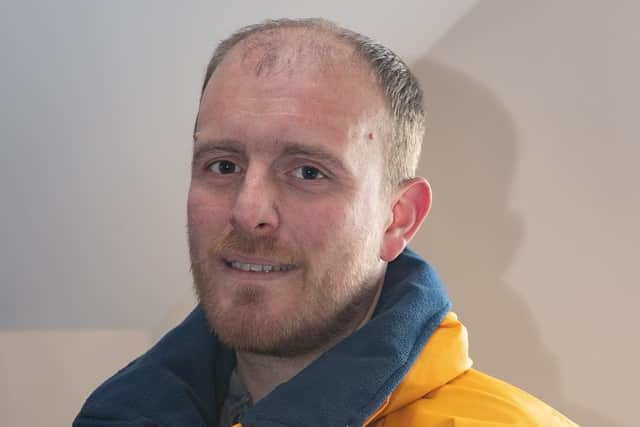

‘I’ve broken fingers on a call, I broke my ankle once – you are putting your life in the hands of friends when you’re on the boat.
‘It can be very dangerous, but that’s why we train.’
‘Very dangerous’ is very true. Six days before Christmas 1981, eight Penlee RNLI volunteer crew died when the Solomon Browne capsized on a call off the Cornish coast.
Thankfully, such incidents are incredibly rare – including Penlee, only 15 RNLI crew have lost their lives in the last 50 years, and none since that dark, dark night in the west country.
Advertisement
Hide AdAdvertisement
Hide AdA deep sense of community involvement is felt by all Hayling crew.
Their two newest recruits are certainly singing from that songsheet.
Pub landlord Mark Jordan – he runs Hayling’s ‘Lifeboat Inn’ (obviously!) – has only been with the RNLI for a few months.
The 37-year-old said: ‘I have always done volunteering, and I just wanted to give something back to Hayling
Advertisement
Hide AdAdvertisement
Hide Ad‘I’m not a water person or a boat person really, but I’m really enjoying it. Everyone has made me so welcome.
‘I want to be hands-on – going on the boat on a call excites me.’
In contrast, Elly Briggs is from a nautical background of sorts – she once taught watersports in Greece and Egypt and still does kitesurfing.
The 34-year-old joined the RNLI last December. She had been living on the Island for five years and partly signed up to feel ‘more integrated’ into Hayling society.
Advertisement
Hide AdAdvertisement
Hide Ad‘It’s great to be part of the team – it’s one of those places where every single person in the organisation is relevant,’ she admitted.
‘We’re all in it together – no job is too small, such as sweeping the floors. It’s great to know you’re part of something much bigger.’
Contrastly, Graham Raines has been involved with the Hayling RNLI since the mid-1970s.
Raines - awarded an MBE in 2004 for his services to lifesaving - also talks up the camaraderie inherent among the crew.
Advertisement
Hide AdAdvertisement
Hide AdRaines said of life in the RNLI: ‘You’re working as a team – you become like a family. And it is like a family – you get a problem at home, the car’s broken down etc, there’s 20 people you can phone who would want to help.
‘(Volunteering here) gives you confidence and skills – I probably wouldn’t have got my current job (site manager at Hayling College) if I hadn’t been in the RNLI.
‘You don’t have to have a maritime background - we’ve had policemen, postmen, computer operators.’
The Hayling team currently have 19 boat crew, but ideally need a minimum of 21. They also have 14 shore crew, but need a minimum of 18.
Advertisement
Hide AdAdvertisement
Hide AdThere are two ‘open day’ events coming up where the RNLI are hoping to attract the new volunteers they need. Anyone interested can visit the station, on Bracklesham Road, on Wednesday, April 3 (6pm-9pm) or Sunday, April 7 (10am-1pm).
Daytime volunteers needed
Potential Hayling-based crew must live within a few minutes drive of the RNLI station.
That is why the organisation are short of volunteers for daytime calls.
Anyone signing up will start as a shore crew member, and can work their way up to boat crew if they want.
Advertisement
Hide AdAdvertisement
Hide Ad‘We have three teams who are known as watches,’ says helm Graham Chapman.
‘The rota is one week on call, one week off, and one week on standby. I f you’re available, you try and get there because we are normally short of crew.
‘We need daytime crew as some people obviously work off the island, but daytime calls during the week are very few.’
Training takes place on Wednesday nights and Sunday mornings, for around 90 minutes each session.
Advertisement
Hide AdAdvertisement
Hide AdNew members remain as shore crew for a minimum of six months..
‘That’s where you cut your teeth,’ explains Graham. ‘If after six months you move up to the boat team that’s when the training starts in earnest.’
Paul Cobon, 58, is a member of the shore crew, whose members don’t have to retire until they are 65.
‘Not everyone steps up to the boat crew,’ he says. ‘Some people get seasick, and some join when they’re too old.
Advertisement
Hide AdAdvertisement
Hide Ad‘Also, if you’re colour blind you’re not allowed on the boat.’
The minimum age anyone can join as a volunteer is 17, with parents’ permission.
There are certain health criteria you need to satisfy before the RNLI will accept you.
Visit https://jobs.rnli to find out whether you qualify.